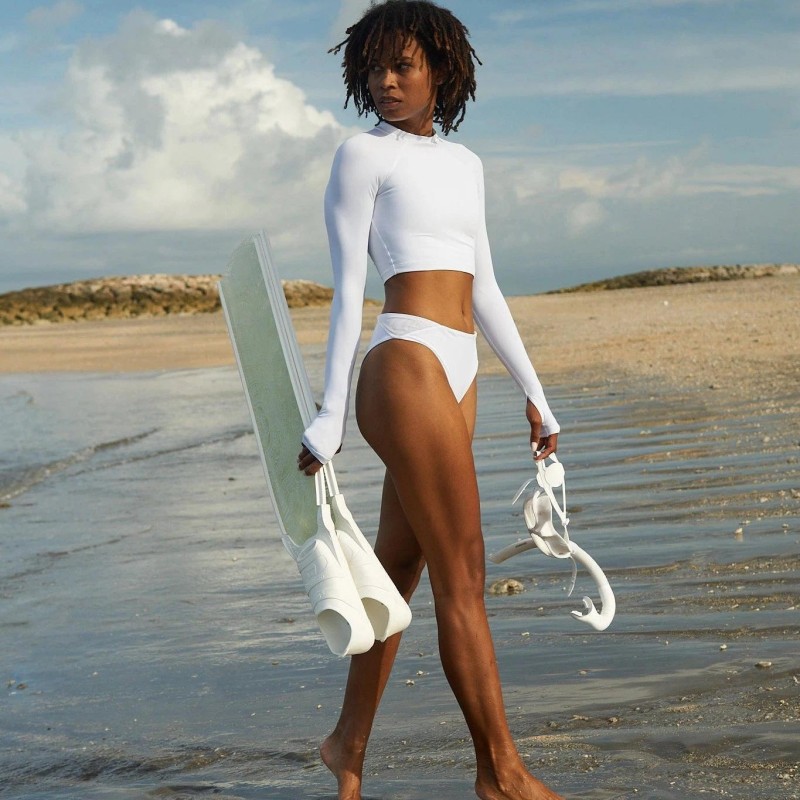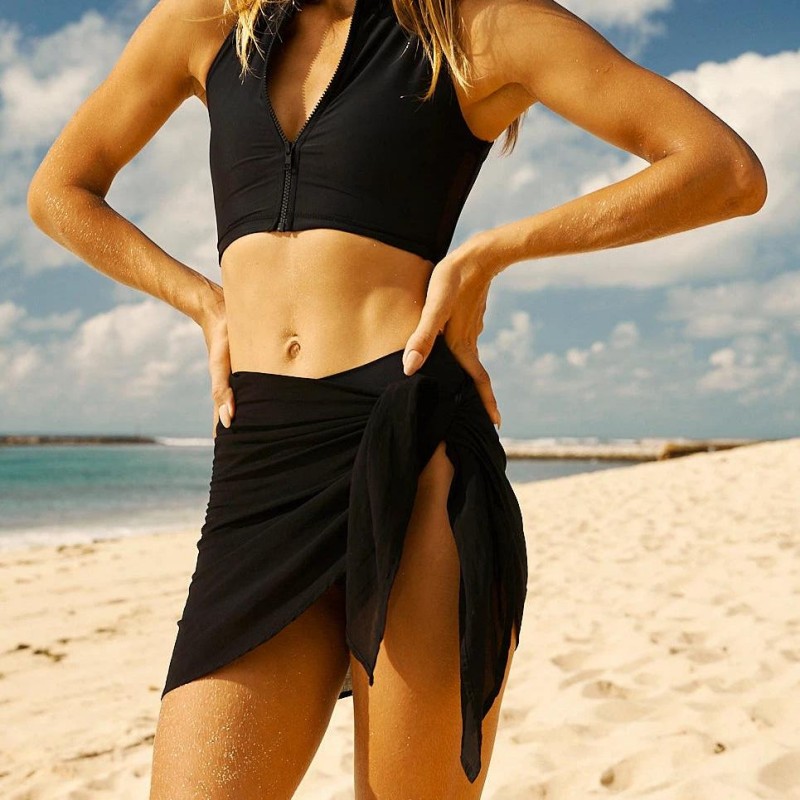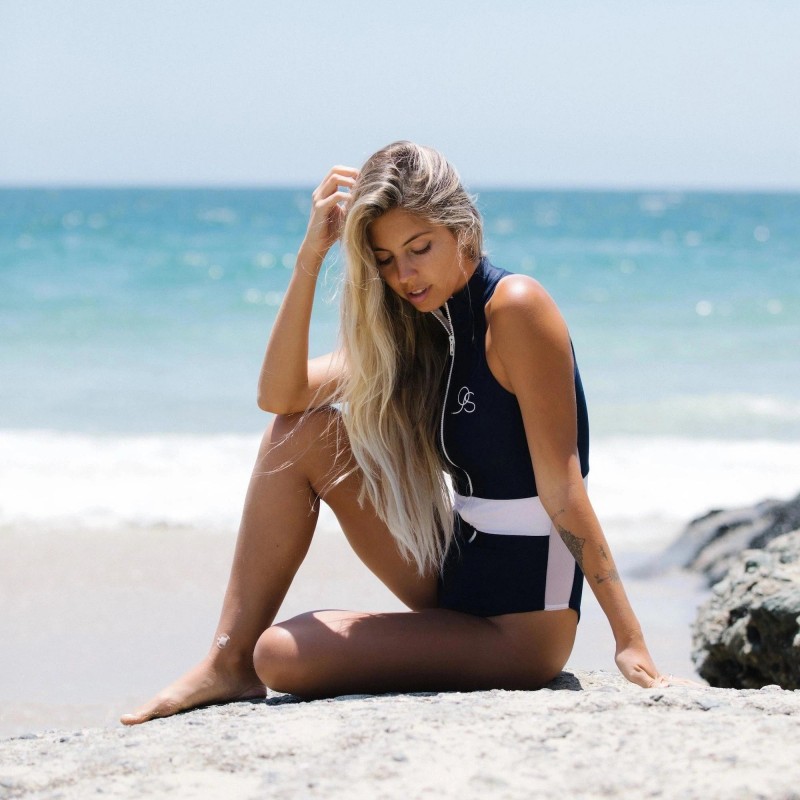Rash vests are essential gear for anyone who spends significant time in the water. Whether you’re surfing, snorkeling, or simply enjoying a day at the beach, a rash vest can protect your skin from harsh elements. Made from high-quality materials like polyester and spandex, these versatile garments are designe to be lightweight, quick-drying, and comfortable. They serve multiple purposes, including shielding against UV rays, preventing rashes caused by friction, and providing thermal insulation in cooler waters. As we navigate through the world of aquatic activities, understanding the importance and benefits of wearing a rash vest becomes crucial for both safety and enjoyment. This comprehensive guide will delve into the many aspects of rash vests, helping you make informed decisions for your water-based adventures.

Contents
What is a Rash Vest?
A rash vest, sometimes referred to as a rash guard or surf shirt, is a type of swimwear designed for active water sports. The primary purpose of a rash vest is to protect the body from rashes caused by abrasion against surfboards, kayak seats, or paddleboards. Additionally, the material of a rash vest is often treate to provide UV protection, which is vital in minimizing sun exposure during long periods in the water. Understanding the anatomy of a rash vest, including its fabric and construction, helps consumers appreciate its functionality and effectiveness.
Materials Used in Rash Vests
Rash vests are typically made from synthetic fabrics, largely incorporating a blend of polyester and spandex. The polyester component provides durability and resistance to chlorine and saltwater, while the spandex adds flexibility and ensures a snug fit. Many rash vests are also enhance with features like flatlock stitching to prevent chafing and mesh panels for breathability. These materials are designed to wick moisture away from the body, keeping you comfortable even during intense physical activity.
Benefits of Wearing a Rash Vest
Rash vests offer numerous benefits that enhance your aquatic experience. The most notable advantages include:
- Protection from the Sun: A quality rash vest can provide a significant level of UV protection, often rated at UPF 50+. This means you can enjoy your water activities without the constant need to reapply sunscreen.
- Prevention of Rashes: For individuals prone to rashes caused by friction or saltwater irritation, a rash vest acts as a barrier, reducing the chances of skin irritation. This is especially important for surfers who spend hours on their boards.
- Thermal Insulation: While some rash vests are designed for warm conditions, others provide thermal insulation for cooler waters. This feature makes them perfect for early mornings when the water temperature is lower or for cooler climates.
- Improved Performance: The compressive nature of some rash vests can provide support to muscles, which may enhance performance during activities like swimming or surfing.
- Versatility: Rash vests are versatile enough to be worn alone or layered under wetsuits. They can also be styled with various swim bottoms, making them suitable for both competitive and recreational use.

Choosing the Right Rash Vest
Selecting the right rash vest is crucial for maximizing its benefits. Here’s what to consider:
Body Shape and Fit
When choosing a rash vest, understanding your body shape is key. Rash vests come in various sizes and cuts. For example, fitted styles offer better performance in the water, while looser options provide a casual fit for beach days. Always consult the sizing charts provided by manufacturers, as sizing can vary significantly between brands.
Activity Level
Consider your intended activities when selecting a rash vest. If you’re a professional surfer or a competitive swimmer, look for a high-performance rash vest that offers superior hydrodynamics and wear resistance. For casual beachgoers, a more relaxed fit with UV protection is suitable.
Fabric Features
Different brands offer varying fabric technologies. Look for rash vests that include features like moisture-wicking technology, lightweight materials, and flatlock seams. Some rash vests also include odor control technology, ensuring you remain fresh, even after a long day in the water.
How to Care for Your Rash Vest
Proper care extends the life of your rash vest and maintains its performance. Follow these essential tips:
Rinse After Use
Always rinse your rash vest with fresh water after each use. This helps remove salt, chlorine, and sunscreen residues that can degrade the fabric over time.
Avoid Harsh Chemicals
When cleaning your rash vest, use gentle detergents specifically designed for swimwear. Avoid bleach or fabric softeners, as these can damage the fabric and reduce its effectiveness.
Drying Techniques
Air drying is the best method for your rash vest. Hang it in a shaded area to prevent fading from sun exposure. Avoid wringing out the vest, as this can stretch the fabric.
Storage
Store your rash vest in a cool, dry place. Avoid folding it for long periods; instead, roll it to minimize creasing.
Popular Brands of Rash Vest
Many brands specialize in producing high-quality rash vests. Here are a few market leaders know for their innovation and reliable products:
O’Neill
O’Neill is a pioneer in surfwear and offers a variety of rash vests suitable for all types of water sports. Their products are know for durability and innovative designs that cater to both men and women.
Rip Curl
Rip Curl’s rash vests are designe not only for performance but also for style. With a wide range of prints and colors, these vests offer excellent functionality without comprising aesthetics.
Billabong
Billabong combines fashion with high performance. Their rash vests are make with eco-friendly materials and come with advanced technology for optimal UV protection and comfort.
Quiksilver
Quiksilver’s rash vests are tailored for serious surfers. With a strong focus on durability and fit, their products are highly favored by professionals and casual surfers alike.
Patagonia
Patagonia is renowne for its environmental commitment, and their rash vests reflect this ethos. Made using recycled materials, Patagonia’s swimwear provides both performance and sustainability.
Rash Vests for Different Water Activities
Different water activities often demand specific features from rash vests, and understanding these needs can greatly improve your experience.
Surfing
For surfers, a vest should offer a tight fit and resilience against the elements. Look for options with extra length to prevent ride-up and materials that enhance movement without restricting flexibility.
Snorkeling and Diving
When snorkeling or diving, a vest provides thermal protection and comfort against equipment. Opt for a long-sleeved version for added sun security while exploring underwater.
Stand-Up Paddleboarding (SUP)
SUP enthusiasts may prefer a vest that combines UV protection and quick-drying features. A looser fit may be more comfortable for a day spent paddling and exploring.
Kayaking
If your water activities involve a lot of movement, such as kayaking, consider a rash vest that features additional stretch and breathable materials. This ensures you maintain comfort and mobility throughout your adventures.

Conclusion
In summary, a rash vest is a vital piece of gear for anyone who loves spending time in the water. With its many benefits, from UV protection and chafing prevention to thermal insulation and versatility, it allows for a more enjoyable and safe aquatic experience. Whether you’re a seasoned surfer or a leisurely beachgoer, understanding how to select, care for, and utilize a rash vest can enhance your time in the water—as well as keep you comfortable and protected. The variety of materials, styles, and brands available means there’s a rash vest out there for everyone, making it an indispensable item in your swimwear collection. Prepare your next adventure by choosing the right rash vest and embrace the joys of aquatic exploration without compromise!